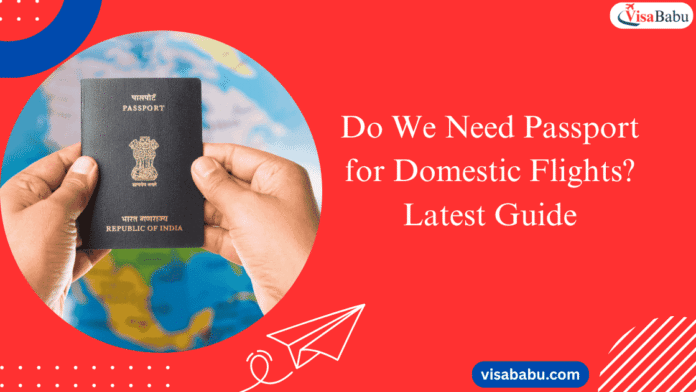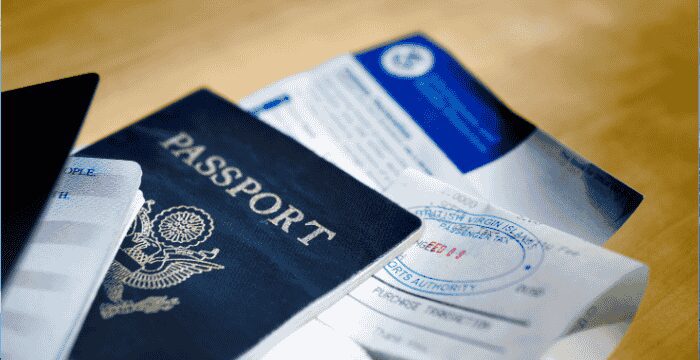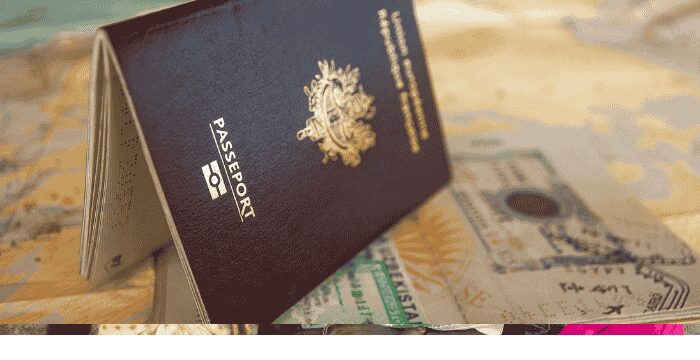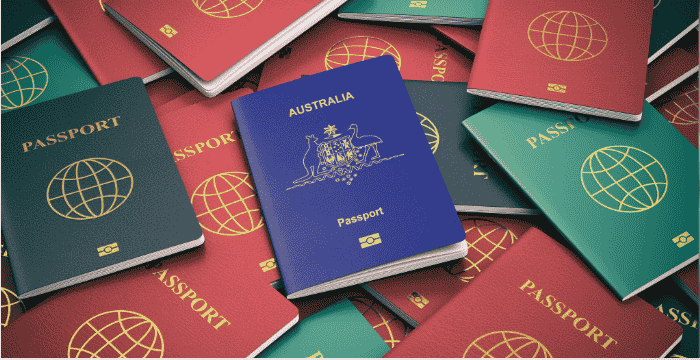Do we need passport for domestic flights in India? Although many people wonder about this every year, the answer is that Indian citizens can fly without a passport for domestic flights in India. Those taking their first domestic flights may be surprised to learn that they don’t always need a passport for trips inside their country.
Many people confuse air travel rules with the need for a passport when flying abroad. Compared to international air travel, getting on a domestic flight in India is straightforward because identification is not a big issue for Indian citizens. When you follow these rules, you can travel with less stress, waste no extra time and have a smooth experience at the airport.
Latest Facts & News for 2025
- Not sure what you need to show for identification on your next domestic flight? Lots of other people around the world face the same uncertainty every year when planning trips. There have been many changes in domestic flight booking and identification due to several key developments.
- Passengers now present their identity differently at airports because of the digital ID revolution. You can now use DigiLocker-generated digital IDs at most Indian airports instead of printing out your documents. The airport experience is made easier for tech-savvy people since the new technology allows for paperless travel.
- Since 2025, Indian nationals do not need passports to fly within India. Even now, this policy means that domestic travel does not require a passport, but a passport is always necessary for international trips.
- Still, people from other countries are treated differently by the rule. Passports and visas, and other immigration documents, are required for domestic flights in India only for foreign nationals. As a result, non-citizens have proper records for their movements in India.
- Aadhaar is now the leading way people identify themselves at Indian airports. Because it is so easy to use and digital, it is the most popular choice among domestic travellers.
- Larger ID checks are now in place with budget airlines to cut down on boarding delays and improve how the company works. Their use ensures that the information of a passenger on a reservation is correct, avoiding late surprises at the check-in desk.
- For minor travel, new rules require unaccompanied minors to present extra documents. They are designed to protect kids, but still make the system easy to use for families.
- If you lose your ID before travelling, airlines may now use affidavits and other verification methods for you. This new system aids stuck travellers and continues to keep standards of security high.
Know the Latest Rules for IDs on Domestic Flights in India 2025
- People travelling by domestic flight in India must meet security requirements laid out by the Bureau of Civil Aviation Security (BCAS) and the Directorate General of Civil Aviation (DGCA). Such rules work to ensure that passengers are safe and can use transport inside India easily.
- The main rule for domestic travel identification is that you need a government-issued photo identification card. When you travel within India, you only need to present any of several types of government IDs, not the typical passport or visa needed for international travel.
- During the airport journey, your travel documents will be checked more than once. Each time passengers go through airport entry, check-in, security checks and onto the plane, they must use their valid identification. Using several identity checks means that passengers can be verified quickly and easily.
- Checking in for your flight is now easier using any of the approved identification documents. Airlines train their staff to tell which government-issued documents are acceptable and how to verify them
- Online identity management has made it possible for people to use DigiLocker to display their documents electronically. The country’s digital infrastructure strategies are being followed in the development of these systems, while maintaining high security standards.
Government-Provided IDs Are Accepted For Travelling On Domestic Flights (2025)
India’s list of acceptable domestic air travel identification documents covers many options to meet the needs of everyone. Learning about your choices lets you decide on the easiest and most suitable way to be identified.
| Document Type | Issuing Authority | Digital Availability | Special Notes |
| Aadhaar Card | UIDAI | Yes (DigiLocker) | Most widely accepted |
| Passport | Ministry of External Affairs | No | Valid but not required |
| Voter ID Card | Election Commission | Yes (DigiLocker) | Includes address proof |
| PAN Card | Income Tax Department | Yes (DigiLocker) | No address information |
| Driving License | Regional Transport Office | Yes (DigiLocker) | State-specific validity |
- You can still use your passport for identification on domestic flights, even though it’s not required. Eliminating confusion and making identification easy, travellers usually take passports with them for domestic trips.
- Travel identification for domestic trips now relies mainly on Aadhaar cards. Most Indian travellers pick them because they are accepted everywhere, can be found online and provide plenty of details. Because of the unique identification number system, accurate identification of passengers occurs at every airport.
- People can use their voter ID cards issued by the Election Commission of India to show both who they are and where they live. These cards are especially useful for anyone travelling in India who doesn’t have other identification from the government.
- PAN cards from the Income Tax Department can be used to identify yourself on domestic flights. Though you won’t find the address on these, their legitimacy and photographic ID feature allow them to be accepted everywhere at Indian airports.
- Identification can also be proven by a driving license from a Regional Transport Office.
- Travellers can enjoy flexibility at most Indian airports because both types of IDs stored in DigiLocker are accepted.
- Other accepted documents cover government employee ID cards, cards from recognised institutions, passbooks from nationalised banks with photos, pension cards with photos and disability cards distributed by state governments.
Do We Need Passport for Domestic Flights in India (2025): The Definitive Answer
- Do we need a passport for domestic flights in India? Indian citizens cannot use passports for flights within the country. Because of this, domestic air travel is easy for Indian citizens, as there is no need for a passport.
- Many people mix up passport rules because they typically associate air travel with travel abroad. Many people who fly for the first time think they need a passport for all flights, but India’s aviation rules say domestic travellers have different and simpler requirements.
- When boarding a domestic flight, passengers are asked to prove they are Indian citizens and their identity, instead of requiring travel authorisation. Because domestic flights are within India, you don’t have to worry about the extra documents required for international travel.
- At domestic terminals, airport security will accept Indian IDs recognised by the government in place of traditional passports. This method delivers security and helps reduce difficulties in domestic air travel.
- The policy foundation for this area accepts that domestic air travel is vital for the growth of economies, family unions and mobility among regions. Asking people to use passports just to travel within their own nation would unnecessarily restrict citizens.
| Travel Type | Passport Required | Alternative IDs Accepted | Additional Documents |
| Domestic (Indian Citizens) | No | Multiple government IDs | Boarding pass only |
| Domestic (Foreign Nationals) | Yes | No alternatives | Valid visa required |
| International (All Travellers) | Yes | No alternatives | Visa, tickets, etc. |
Why Domestic Travel Doesn’t Always Need a Passport (2025)?
- The main reason passports are not required on domestic flights is related to what a passport is meant for. A passport is recognised everywhere as evidence of a person’s citizenship and lets someone cross international borders. Since all domestic flights take place within India, services for international flights are not necessary.
- Identity verification is most important for travel within India, instead of authorisation to enter or leave the country. The government believes that several types of identification provide enough information to prevent fraud.
- The policy also focuses on making economic accessibility a key part of its strategy. Applying for a passport means paying fees, waiting for it to be processed and submitting documents, which may stop citizens from travelling inside their country for important reasons. Today’s alternatives allow every economic sector to board domestic flights easily.
- This strategy depends on having good administrative efficiency. Airports are able to process more people faster when they accept several types of identification, instead of having to use just one document. Having flexible staff at airports allows work to move smoothly, and manageability improves.
- The site’s safety is assured by using a verification system that takes many government-issued IDs into account. All valid forms of ID have specific security measures and ways to verify a person’s identity without slowing down airport operations.
Acceptable Documents for Travel Within India in 2025
Virtually every Indian citizen can travel by air domestically, thanks to the diverse list of documents the ministry accepts. By using this method, the government is letting everyone from various walks of life participate in air travel.
They cover photo IDs issued by the central government, the governments of states, public sector undertakings or recognised schools and universities. Accepting a wide range of criteria means that almost everyone is able to get identification that suits them.
Having a professional identification card given by a government institution makes travelling within the country easier. Such cards are also available from the central and state governments, public sector companies and recognised institutions of education.
Checking identification documentation, such as attested photos on nationalised bank passbooks, is a new way to securely prove someone’s identity. This way maximises the chances for rural areas, where most people do not have access to other types of official photo identification.
In addition, pension cards that have photographs are issued to senior citizens, and state governments provide disability ID cards. The rules give people with specific needs access to domestic air travel.
| ID Category | Examples | Target Population | Special Benefits |
| Universal IDs | Aadhaar, Passport, Voter ID | All citizens | Widely accepted |
| Financial IDs | PAN Card, Bank Passbook | Working professionals | Quick verification |
| Professional IDs | Government employee cards | Public sector workers | Institutional backing |
| Specialized IDs | Pension cards, Disability cards | Vulnerable populations | Inclusive access |
What You Need to Prepare for Domestic Airline Travel in 2025?
- Although airline check-in varies, all airlines must adhere to the same basic rules set by the BCAS and DGCA about identity. Knowing about these differences allows travellers to get ready for the best airline journey.
- Airline companies have created efficient ways to identify passengers with all the forms of government-issued IDs permitted. They also include employee training that ensures every airport can spot and confirm all different types of documents with consistency.
- Rigorous checks at security are common for budget carriers to limit delays before boarding and chaos during operations. In some cases, the new procedures call for checking documents more closely and matching names more carefully.
- Premium airlines are more likely to give passengers more time to verify their documents and may help answer any questions about their documents. Many of their services include direct help with identification problems.
- Airlines vary in their digital integration, and a few are ahead in accepting DigiLocker and using mobile verification. With these technologies, check-in for passengers using a digital ID can be completed much faster.
Latest Identification Requirements for Major Airlines in 2025
All approved identification documents are accepted by Air India, acting as the national carrier. Their website clearly shows the documents passengers are allowed and provides detailed information on what each passenger needs.
IndiGo, the biggest domestic airline in India, uses efficient methods to check passengers and maintain safety for large numbers of passengers. Their fast process supports digital check-in using many different types of ID.
SpiceJet sticks to the guidelines of the BCAS and also develops its own procedures to reduce the reasons for delays during check-in. They stress that travellers should always have their original ID during their trip.
If you travel with Vistara or another premium carrier, you may receive special help for documentation and have your papers checked more quickly.
| Airline | Digital ID Acceptance | Special Services | Verification Speed | Customer Support |
| Air India | Yes (DigiLocker) | Premium counters | Standard | Comprehensive |
| IndiGo | Yes (Limited) | Web check-in | Fast | Self-service focused |
| SpiceJet | Yes (DigiLocker) | Standard counters | Standard | Basic |
| Vistara | Yes (Full) | Premium assistance | Fast | Enhanced |
A Comparison of Airline Budget and Premium Policies in 2025
- Because budget airlines strive for efficiency and save costs, their processes for checking documents are affected. Because these carriers do not allow much flexibility, they follow standard rules very carefully most of the time.
- On premium airlines, passengers usually get personalised help that allows for extra ease in resolving documentation problems. Higher service standards help these airlines provide extra help to passengers who can’t show proper ID.
- The processing rate depends on the airline, with budget carriers using speed and uniformity, while premium carriers provide quicker service for their most expensive fare customers.
- Different airlines handle customer support in many ways; premium airlines help with documents, while budget carriers prefer to let you deal with most issues yourself.
There are exceptions to the general guidelines (2025).
- Travel within India requires looking at some special cases that go beyond the usual identification rules. Being aware of these exceptions enables travellers to deal with any special events on domestic trips.
- If passengers can’t access their usual identification, airlines may use alternative ways to confirm who they are during an emergency travel situation. Airlines and airport officials have made plans for dealing with special situations and still ensuring safety.
- Individuals with limited movement or trouble getting required documents may be part of medical travel. There are special ways to care for medical travellers that also verify their identity properly.
- Corporate identification is often required for large companies and government employees who travel on business. On occasion, these procedures allow verification to be done in a different way.
- When travelling on institution-arranged trips, participants can be subject to simplified border checks.
Important Passport Rules for Foreign Nationals Traveling Within India in 2025
- When travelling inside India, foreign nationals need to meet unique requirements. If you are not an Indian, you are required to have a passport for any domestic flight you take, whether you live in India or not.
- Foreign nationals applying for a passport are required to have one that is valid after the day of travel. Many airlines set a six-month validity rule for passports when you fly within your own country, the same as when travelling on international flights.
- Foreign travellers on domestic flights must bring their visa documents when they show their passports. Staff need to see valid tourist visas, business visas or the right type of visa along with passports during both check-in and the security process.
- Although PIO cardholders and those with OCI registration certificates enjoy special rules, a passport is necessary for all domestic travel.
- While passports are still required for domestic travel by long-term foreign residents with permits, their residence permits often help speed up the verification process.
| Foreign National Category | Required Documents | Additional Requirements | Special Considerations |
| Tourist Visa Holders | Passport + Tourist Visa | Valid for travel duration | No alternative IDs accepted |
| Business Visa Holders | Passport + Business Visa | Company documentation may help | Standard procedures apply |
| PIO/OCI Holders | Passport + PIO/OCI Card | Simplified verification | Some flexibility possible |
| Long-term Residents | Passport + Resident Permit | Permit validity required | Expedited processing possible |
Essential Steps to Support Children and Minors in 2025
To identify minors and children by air, there are set rules about their documents that keep security high but allow families with children to travel comfortably.
Children under two years old must present a birth certificate or hospital discharge paper to get their age checked and pay for their tickets. You are identified, and your age is confirmed with these documents for airline ticket prices and safety rules.
Anyone between the ages of 2 and 12 is required to have identification from the government, which may be a school ID card, Aadhaar or birth certificate. Since young children usually do not have all the basic adult documents, the rules allow some flexible types of identification.
Minor travellers are required to submit parental or guardian consent, verified copies of the guardian’s ID and detailed information for the receiving persons at their destination airport.
When children are travelling with people other than their parents, family travel papers should confirm the relationships among them. Records of birth certificates, adoption or court-appointed guardianship are required.
For school trips, simplified paperwork is used by institutions to cover the group, including multiple students who are supervised by teachers while in transit.
| Age Group | Required Documents | Additional Requirements | Guardian Involvement |
| Infants (0-2 years) | Birth certificate | Age verification | Parent/guardian required |
| Children (2-12 years) | School ID or Aadhaar | Guardian consent if alone | Recommended accompaniment |
| Unaccompanied Minors (5-12) | ID + Consent forms | Receiving party details | Mandatory procedures |
| Teenagers (13-17 years) | Government-issued ID | Parental awareness | Situation-dependent |
What to Do if You Lose Your ID at the Airport? Expert Tips for Smooth Travel in 2025
- There are rules in place at airports for what to do with passengers who arrive without the correct documents. They ensure both safety for others and support for those without transportation.
- If someone loses their identification, the police report is the first step to take. Normally, airport staff require you to show proof of the loss before using other forms of verification.
- It is possible to ask passengers to present an affidavit with their sworn statement of identity, and you can accept secondary documentation, for example, credit cards, employee IDs or digital substitutes for lost documents, too.
- Depending on the airline, guidelines on lost ID may be more understanding than with some other carriers. Passengers are advised to reach out to their airline as soon as their identification is lost, to learn what can be done.
- Using family members or employers to check travel documents may help confirm someone’s identity. Some airports will allow verification by phone or documents from a trusted third party to identify passengers.
- Since lost IDs mean extra processing time, timing is crucial in such cases. Allow yourself plenty of time at check-in when you are concerned about your identification documents.
Digital ID Solutions and the use of DigiLocker
- Now, thanks to digital platforms, governments no longer require physically carrying photo IDs. Passengers at Indian airports now show their identification differently, thanks to DigiLocker.
- Via DigiLocker, airport systems now easily verify the digital documents uploaded to the government’s cloud. Integrating these two features is a major step toward having paperless trips.
- Digital platforms offer a range of security features to make sure the travel documents are real and easy for passengers to access. Blockchain technology and encryption are employed by the system to make documents safe and reliable.
- Presenting a digital ID with apps is now common at airports across India. With these apps, passengers can keep and present different documents for identification on digital devices.
- Airport security now allows you to use digital files while still ensuring documents are checked accordingly. Security officers are taught how to verify and authenticate electronic documents.
The introduction of digital ID techniques is part of India’s Digital India efforts to ensure paperless administration and make it easier for citizens.
| Digital Platform | Supported Documents | Airport Acceptance | Security Features |
| DigiLocker | Aadhaar, PAN, DL | Universal | Government encryption |
| Digi Yatra | Boarding pass + ID | 20+ airports | Facial recognition |
| m-Aadhaar | Aadhaar card only | Most airports | UIDAI security |
| Airline Apps | Boarding passes | Carrier-specific | Basic encryption |
Digi Yatra is the best digital travel solution today, using facial scanning and digital documents. Travelling from start to finish can now be done without ever having to touch anything.
When digital ID systems use facial recognition, passengers can breeze through airport checkpoints. After being registered, a passenger is let through airport security and boarding, solely based on facial verification connected to their digital identification.
Working with blockchain technology, digital ID platforms secure documents and keep them from being altered. Using this method, you get more protection along with easier digital access than you would with simple paper documents.
Users of digital IDs can manage their personal information, and the data is removed automatically after they finish the flight. Technological convenience is made possible by this approach while giving much attention to privacy concerns.
Travel Documentation and Regulations for Domestic and Sensitive Regions in India
- Regulations for Indian aviation are similar throughout the country, but since each region is unique, some differences appear in domestic travel documentation. Learning about these details allows tourists to prepare for different places.
- To visit some regions at the borders or sensitive places, travellers may be required to show additional permits with their identification. Usually, these regulations are designed for particular districts instead of all the states.
- While individual states set their own policies on COVID protocols, most requirements have been made simpler since 2025. Health screening processes in some places may need you to provide more documentation than usual.
- In some northeastern States, residents must get special documents to access tribal zones, but these do not usually concern those flying to big airports.
- People travelling from another country to the Andaman and Nicobar Islands must bring their passports and valid papers, regardless of whether their flights are international or domestic.
- When there is an emergency or a security situation, standard identification procedures may be put aside for a specific time. Check official advisories in advance if you are planning to travel when there’s an emergency.
| Region Type | Additional Requirements | Affected Areas | Documentation Needed |
| Border Areas | Special permits possible | Select districts | Standard ID is usually sufficient |
| Tribal Areas | Entry permits | Northeast regions | Varies by specific location |
| Island Territories | Enhanced screening | Andaman & Nicobar | Standard for Indians, a passport for foreigners |
| Metropolitan Areas | Standard procedures | Major cities | No additional requirements |
Things to Avoid and Useful Tips for Stress-free Domestic Travel in India 2025
- Your domestic flight booking can be successful only if you avoid typical errors in documentation that delay you or prevent you from boarding the aeroplane. If you know about these problems, you can handle your airport experience with less difficulty.
- The most common problem with documentation happens when a passenger’s name on the ticket is not the same as the name on the ID. Making sure the dog’s name on the file is the same as on the boarding ticket is very important.
- Anyone flying with expired identification ends up having problems. Being just a day late with your ID card can lead to boarding rejection or extended delays.
- It allows people travelling to access identification, no matter if their physical cards are gone. Holding your digital files in more than one secure place gives you options in case of an emergency.
- When travelling at major travel times or with alternative identity papers, allow extra time for document checking at the airport.
- Checking an airline’s rules ahead of your trip helps you learn about any special policies of the carrier that are not part of standard regulations.
Problems With Name Mismatches And Their Solutions in 2025
- The rules for identification mean tickets and passports should match exactly, but airlines have created ways to handle small differences that look innocent.
- The way you spell your name when booking should match the format used on your identification. Avoid choosing nicknames, cutting down your name or changing the spelling when booking your ticket.
- Making sure the titles on tickets and IDs are the same avoids most verification issues. Titles on the booking document should be the same as those on the passenger’s identity documents.
- If your name is slightly different, there are procedures to correct this, although it may cost you a little more or require some additional documentation. If your name doesn’t match on your ID, contact your airline as soon as you become aware.
- A name change on legal documents must take place before you can travel abroad. Any recent changes in marital status or legal name should be noted in the identification you use to travel by air.
| Mismatch Type | Severity Level | Typical Resolution | Prevention Strategy |
| Minor spelling differences | Low | Airline discretion | Double-check booking details |
| Title variations | Low | Usually accepted | Use consistent titles |
| Significant name differences | High | Rebooking required | Verify ID before booking |
| Legal name changes | High | Updated documents needed | Update IDs promptly |
Experts Tips for Managing Expired Travel Documents and Identification in 2025
Validity checking during travel document verification at airports can reveal identification papers that have passed their expiration date. Having knowledge of airport and airline rules for expired documents prevents travellers from encountering surprises at the airport.
Some airlines offer grace periods which allow additional time for travellers who supply extra documents.
Allow for extra time for processing when scheduling renewal near a trip. People who travel should ensure their identification is up to date long before it expires, most importantly, before they travel.
Using alternative documents helps travellers stay able to travel once their regular identification ends. If you bring additional identification, you always have a second option.
You can use emergency renewal procedures for immediate travel needs, which often require additional costs and fast processing.
Benefits of Bringing Your Passport for Travel Within India (2025)
- Many people may think no passport is needed for domestic flights, but having one makes domestic travel easier for those who travel a lot.
- Passports are most useful for travel inside a country because they allow everyone to accept you without question. All passports are accepted at airports, so no one will doubt the authenticity of your papers.
- Passengers travelling internationally find it much easier if they already have their passports for the domestic parts of their trip. It simplifies things by requiring only one document for all your complicated trips.
- Some airports may provide better service to passport holders, since staff often link passports with frequent or international travellers.
- Travel becomes more secure with passport backups, since they can confirm who you are when your other documents are missing.
Using your old passports now means you can travel internationally at any time without waiting for new documents.
| Advantage Category | Specific Benefits | Traveler Types | Situations |
| Convenience | Universal acceptance | All travelers | Any domestic flight |
| Flexibility | International readiness | Frequent flyers | Multi-segment trips |
| Security | Reliable backup | Cautious travelers | High-stakes travel |
| Service | Premium recognition | Business travelers | Airport services |
Business travellers who dislike handling many types of documents prefer the convenience of a document consolidation service. With a passport, you don’t need to stress about which ID to bring.
A passport’s picture quality is frequently higher than in other official documents, which can make photo matching faster and simpler at security checkpoints.
Most passports stay valid for longer than other forms of identity, so frequent travellers don’t have to apply for a new passport every year.
India’s Aviation Revolution: Biometric Tech, AI, and the Future of Travel
- Greater use of digital technology and improved convenience for passengers are being introduced into Indian aviation, but security is not overlooked. Being aware of these trends helps people get ready for possible updates in travel regulations within their country.
- At Indian airports, the use of biometric features such as facial and fingerprint recognition is becoming more frequent. These systems could aid in the reduction of the use of paper or digital documents.
- When blockchain identification systems are ready, they could offer users fast and secure verification that currently takes time with documents.
- AI technology is now helping to quicken and improve the accuracy of identity checking, while lowering the chance of errors.
- The use of mobile apps for travel documents in India matches the country’s high smartphone and digital development. Mobile applications could be the only way to present identification in future systems.
- Because India is involved in both aviation security and technology sharing initiatives at an international level, its travel documents may be standardised.
| Technology Trend | Implementation Timeline | Expected Benefits | Current Status |
| Facial Recognition | 2025-2027 | Contactless verification | Limited deployment |
| Blockchain IDs | 2027-2030 | Tamper-proof documents | Development phase |
| AI Verification | 2025-2026 | Faster processing | Testing phase |
| Mobile Integration | 2024-2025 | Complete digitization | Partial implementation |
- India’s government is making clear efforts to promote digital changes in travel documents, relying on programs such as Digital India to increase technology adoption at airports.
- Various privacy rules are being created so that new travel identification methods can both protect passengers and offer them convenient travel.
- Future transportation technology will ensure that ageing people, rural communities and those with little internet access can use it without any problems.
Conclusion
Do we need a passport for domestic flights in India? For Indians, the answer is still no, and this policy keeps air travel within reach and simple for many people every year. For travellers, seeing all the acceptable papers, ranging from Aadhaar cards to DigiLocker solutions, gives them the chance to decide the best option for themselves.
The change in domestic air travel in India to use more digital solutions and make things simpler shows the nation’s dedication to both improvement and including everyone. If you’re flying for the first time or the hundredth, being familiar with these rules helps you have a stress-free airport visit.
Technology will keep changing airport security, though the basic principle of domestic travel for Indians won’t change. If you monitor current policies and have all the right papers, you won’t have to worry about your identity when travelling abroad.
Air travel documentation is expected to become more convenient, thanks to biometrics and digital solutions, while still maintaining the safety that all passengers need. While systems develop, the common message is that proper readiness and valid identification make for trouble-free trips by air in India.
Frequently Asked Questions (FAQs).
Q1. Can I board domestic flights just with my passport rather than other forms of ID?
Ans. Even though you don’t have to use a passport for domestic flights, you can use it as an accepted form of identification. Many people pick passports because they are accepted around the world and trusted.
Q2. What will happen if I leave my ID behind while I go?
Ans. Police reports, affidavits, and secondary supporting documents may be accepted by airlines as verification. Call your airline right away and arrive at the airport earlier than usual for extra time with the security team.
Q3. Can I use photocopies of my IDs for travel within the country?
Ans. You may not use photocopies for domestic flights. You can present your papers either in digital form through DigiLocker or in original copies.
Q4. Do seniors need any special papers to travel around the country?
Ans. All seniors need to provide the same identifying paperwork, but it’s a good idea to bring age-proof documents for unexpected medical situations. Certain airlines provide help to elderly people when they travel.
Q5. Can I fly within my country with an expired passport?
Ans. Even though expired passports are not usually allowed, the rules for airlines can vary. You should try to carry Aadhaar cards or voter IDs, in addition to your passport, for domestic travel.











